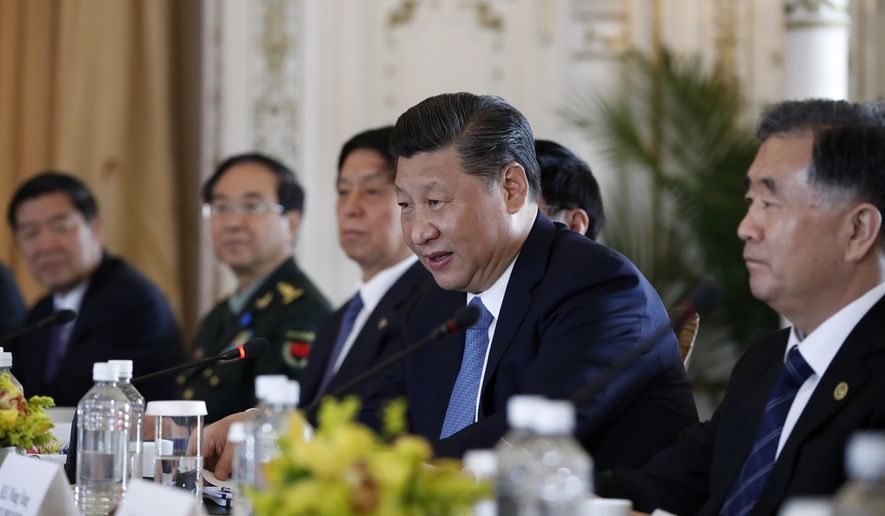With climate change seemingly absent from the agenda, the weekend meeting between President Trump and his Chinese counterpart Xi Jinping underscored that the U.S. has all but abandoned its status as the international leader on global warming and ceded that position to China.
Mr. Trump and Mr. Xi said nothing publicly about past commitments between the two nations to work together to fight climate change, and there seems to be a growing understanding among Chinese officials that their country may now have the responsibility — and a key economic opportunity, activists say — to become the global leader on the issue.
“China clearly and rightfully sees Trump’s backwards looking policy and inept leadership as an opportunity to become a global leader, but it’s also stepping into the vacuum simply through its self-interest as a country threatened by the impacts of climate change,” said Travis Nichols, a spokesman for Greenpeace, a leading environmental activist group.
“You don’t have to be a visionary to see climate change as a threat and fossil fuels as outdated. You just have to be a halfway competent leader,” he added.
Late in President Obama’s second term, the U.S., China, and a host of other nations struck a landmark climate deal in Paris. The agreement, heralded as the most ambitious international climate change deal in history, called on the U.S. to reduce its greenhouse gas emissions by at least 26 percent by 2025.
China agreed to cap its emissions by 2030 and then begin reductions. The deal was not a formal treaty and does not carry any major consequences, other than public shaming.
While the Trump administration still is weighing whether to exit the deal formally, it’s taken steps that will make meeting the emissions goal virtually impossible. Among other things, the president has instructed his Environmental Protection Agency to begin undoing the Clean Power Plan, a set of limits on carbon emissions from power plants and a crucial piece of meeting the broader emissions goal.
Not only is the administration taking steps to pull back from the Paris deal, high-ranking officials also are publicly bad-mouthing it, sending a clear signal to the Chinese that the Obama-era U.S. commitment no longer applies.
“What was wrong with Paris was not just that it was, you know, failed to be treated as a treaty, but China and India, the largest producers of CO2 internationally, got away scot-free. They didn’t have to take steps until 2030,” EPA Administrator Scott Pruitt said last month. “Paris was just a bad deal, in my estimation.”
China remains the world’s largest carbon polluter, making the Paris deal a key turning point in international efforts to combat climate change. Within the country, there’s a sense that the U.S. is walking away from both its global responsibility and years of pressuring China and other countries to take action.
“Western opinion should continue to pressure the Trump administration on climate change. Washington’s political selfishness must be discouraged,” reads an editorial in China’s Global Times last month. “China will remain the world’s biggest developing country for a long time. How can it be expected to sacrifice its own development space for those developed western powerhouses?”
For now at least, China seems to be moving ahead with its emissions reduction goals.
A United Nations report published in December — just as the Trump transition team was developing plans to shelve U.S. environmental regulations — said that China intends to take steps to begin reducing its emissions even before the 2030 deadline.
It’s also speeding its development of renewable energy, which environmentalists argue gives the country an opportunity to create jobs through green power and technological advances.
“China will spread the use of low-carbon technologies and products, update the carbon emission standard system and push for the establishment of a unified national carbon emissions trading market,” reads part of a report from the United Nations Framework Convention on Climate Change.
• Ben Wolfgang can be reached at bwolfgang@washingtontimes.com.




Please read our comment policy before commenting.